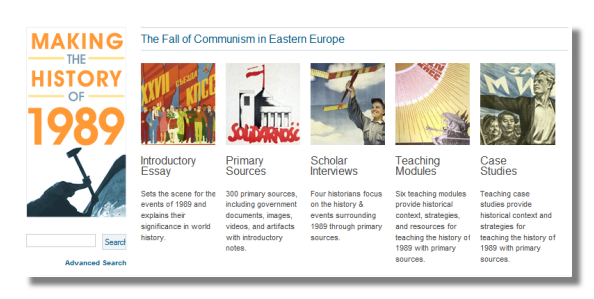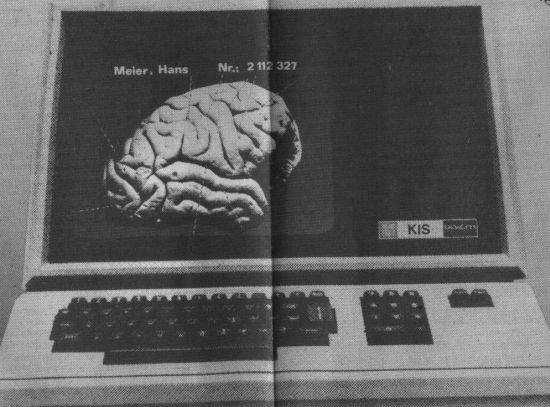I’m pleased to announce that after more than two years of steady work our project team at the Center for History and New Media has launched Making the History of 1989: The Fall of Communism in Eastern Europe. This project offers users hundreds of primary sources on the events of 1989 and the end of the Cold War in Europe, interviews with prominent scholars, and a suite of resources for teachers and students, including extended teaching modules and a series of teaching case studies focused on particular primary sources.

Because this project was built from the ground up using our Omeka platform, we have been able to add some new features unavailable in some of our earlier world history projects. These include the ability to geolocate the primary sources in the database (a feature being recoded as I write this and so not available today), and the ability to register as a user, login, and then self-organize the primary source archive. Users who are logged in can save individual sources, add their own tags to those sources, and write note on their sources for later reference. Users can also create an online poster from their personal set of sources–a feature targeted specifically at students.
As with the launch of any major web project, there are still a few things to be added. We still have a few teaching modules to add, some of the primary sources still need annotations, and one of the scholar interviews is still in production. But the majority of the resources are now up and available for your use.
No project like this one would be possible without a large team of people–staff and authors–who have worked very hard over the past two years to bring this effort to a successful conclusion. A quick look at the About page will give you a sense for how many people it takes to make something like this happen. Since this is our official launch week, I want to publicly thank everyone who has contributed to the project. And, of course, I would be remiss if I did not also thank our two principal funders–the National Endowment for the Humanities and the German Historical Institute (Washington, D.C.).



